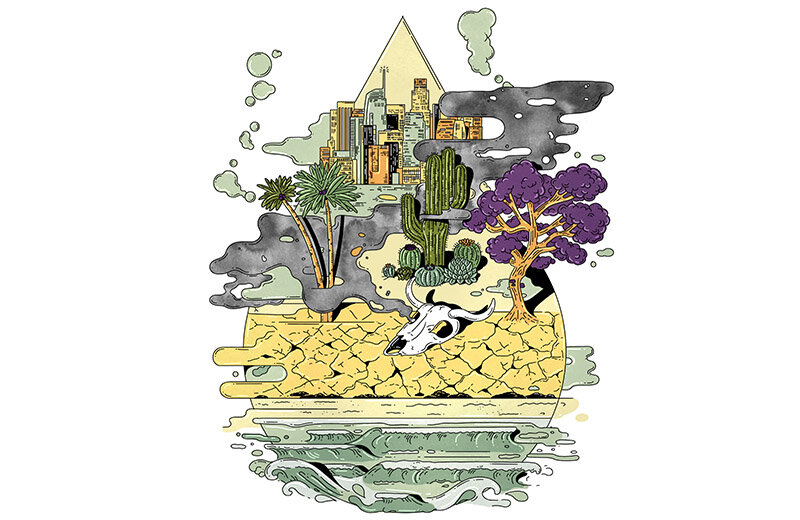The history of Los Angeles is inextricably intertwined with the city’s insatiable thirst for the water it desperately needed to sustain its growth. The early 20th-century “Water Wars” that made L.A. possible also mired the city in a shadowy saga of corruption and lies that inspired one of the most celebrated noir movies of all time: Chinatown.
In Los Angeles, the historians know the truth: The water here is anything but clean.
Like many areas with relatively high temperatures and paltry precipitation, water has always been a matter of life and death for L.A., a city that sits on a semi-arid coastal plain with desert on three sides and the Pacific Ocean on the fourth. The city resorted to drastic, at times deeply unethical — and occasionally even criminal — means to secure the vital resource that enabled it to grow into a major world metropolis.
“Water invites all kinds of shenanigans in the American West. It invites all kinds of deals: smoke-filled room deals, quiet deals, corrupt deals. And people need to know these histories,” says William Deverell, professor of history, spatial sciences and environmental studies at USC Dornsife.
